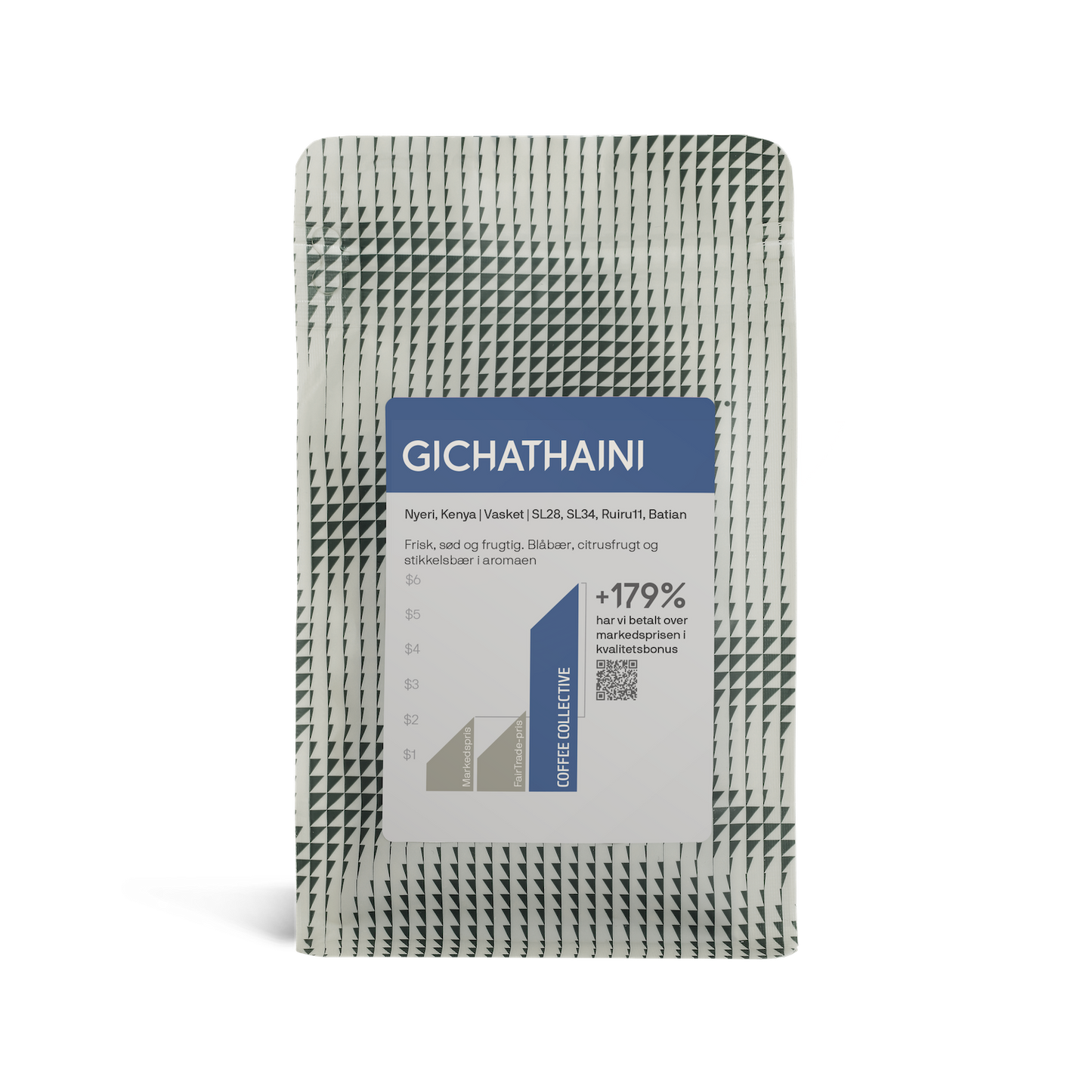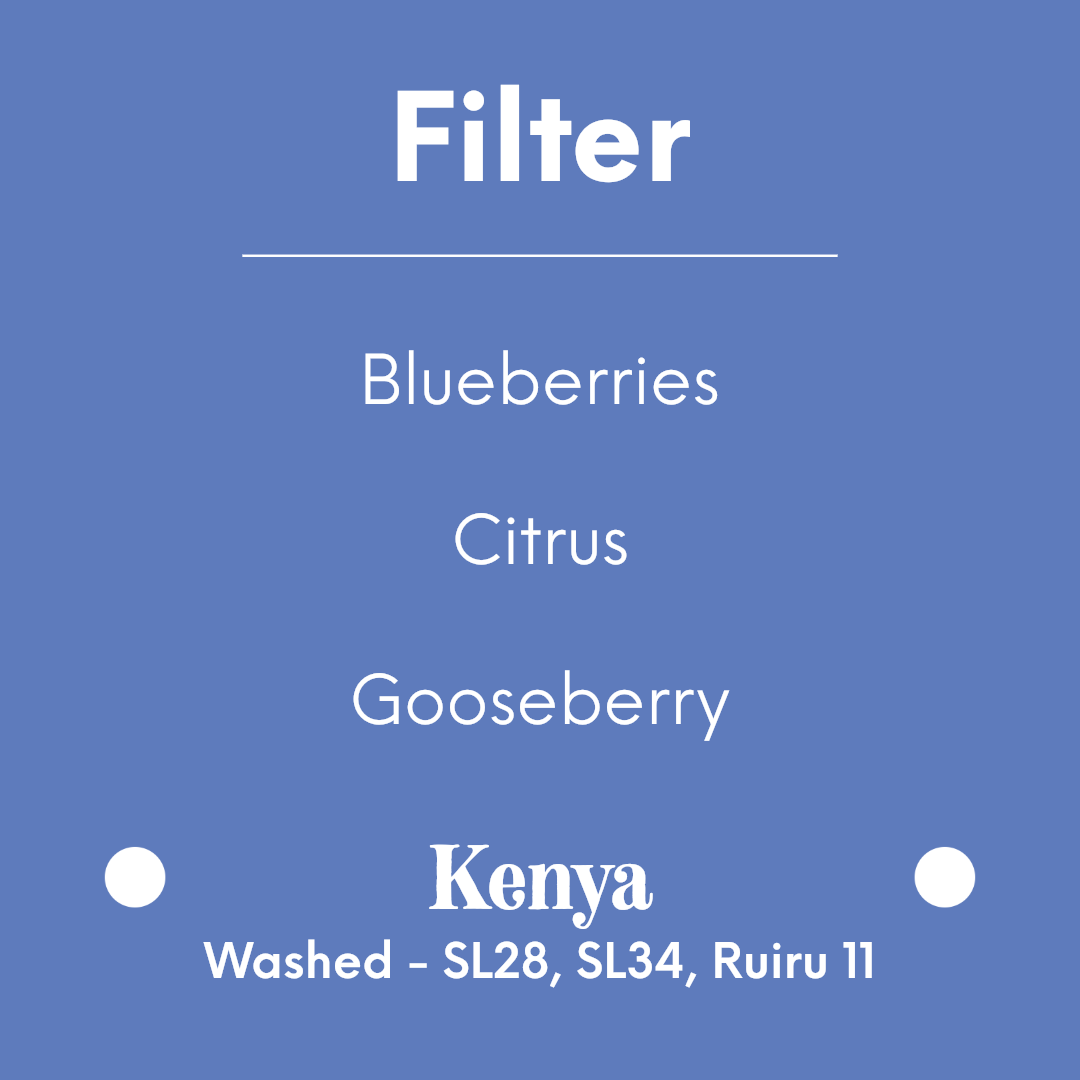COFFEE COLLECTIVE
COFFEE COLLECTIVE - Gichathaini - Kenya - Washed - SL28, SL34, Ruiru 11, Batian
COFFEE COLLECTIVE - Gichathaini - Kenya - Washed - SL28, SL34, Ruiru 11, Batian
Couldn't load pickup availability
| Tasting Notes: | Blueberries, Citrus, Gooseberry |
| Origin: | Gikanda, Nyeri, Kenya |
| Process: | Washed |
| Varieties: | SL28, SL34, Ruiru 11, Batian |
| Altitude: | 1600 - 1900 m |
|
Roast Date: |
February 3, 2025 |
COFFEE COLLECTIVE is located in Frederiksberg, Denmark
From COFFEE COLLECTIVE
Vibrant and fruity with aromas of blueberries, citrus, and gooseberry
ADDITIONAL INFORMATION
Gichathaini is one of three factories that form part of the Gikanda Cooperative Society in Nyeri, Kenya, a region renowned for producing some of the most distinctive and high-quality coffees in Kenya. The cooperative serves 1,850 smallholder farmers who deliver their cherries to the Gichathaini factory. These farmers typically cultivate coffee on small plots of land, intercropping with other crops like avocados, bananas, kale, and pumpkins, which contribute to the high biodiversity in the area.
The coffee processed at Gichathaini is predominantly of the SL28, SL34, and Batian varieties—well-known for their resilience and ability to produce complex and vibrant flavors. The factory itself is equipped with a wet mill, where the cherries are processed, and a nursery where farmers can access young seedlings to ensure the sustainability of their farms.
During our visit in February, we met with Gikanda manager Timothy Njogu and dry mill manager Gilson Wamae, who shared insights into the cooperative's operations and the challenges and successes of the farmers they support. The commitment to quality and sustainability at Gichathaini is evident in the care taken at every stage of production, from seedling to the final processed coffee, ensuring that each cup tells the story of the land and the people who cultivate it.
Post-Harvest processing
The Gichathaini process involves meticulous cherry selection, followed by a multi-stage washing and fermentation process that enhances the clarity and vibrancy of the cup. After depulping, the coffee undergoes up to three separate fermentations, each interspersed with thorough washing in long channels. The beans are then soaked for an extended period in clean water, which is believed to contribute to the complex fruit-forward and wine-like acidity characteristic of Kenyan coffees.
Finally, drying takes place over 21 days on raised African beds, with the beans carefully protected during the hottest parts of the day and at night
Share




